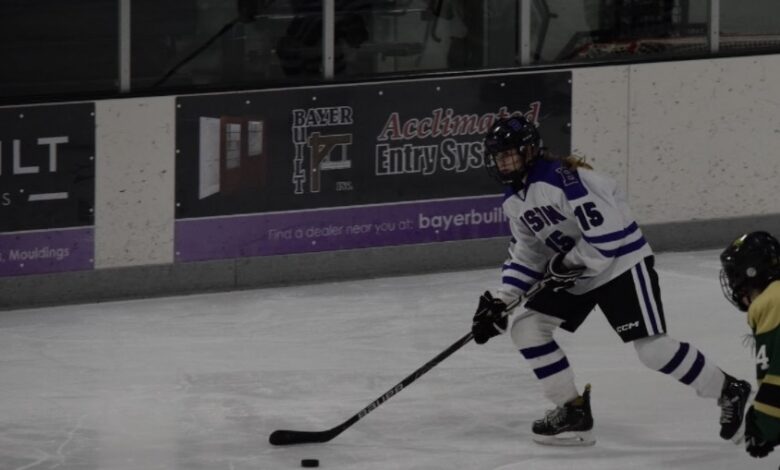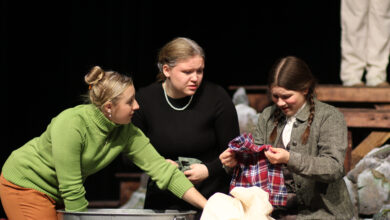
Mackenzie Koren 25’ is one of many high-achieving students who choose to take vigorous classes and get involved in multiple sports. What students get told all day long, in advisory, and in health class, is that they should easily be able to manage being a student-athlete while also balancing their physical, emotional, and social health. So how do student-athletes at BHS manage to balance all of these things with only 24 hours each day?
6:30 Koren starts her typical day by snoozing her alarm, trying to preserve what little sleep she got over the past night. She does her morning routine slowly and sluggishly, only half awake after her long hours the day before.
8:10 Koren prepares her backpack, throws on her coat, and leaves for the bus stop.
8:45 She heads to her first block trying to cram as much information into her brain as it can take the entirety of the school day.
3:25 Koren sprints out of the school as fast as possible and heads straight to the rink for hockey practice.
4:00 She spends an hour working hard on the ice.
5:15 Koren begins her post-ice workout.
6:30 She departs the rink.
6:45 Koren arrives at home and hurries to make dinner. She pieces herself together whatever leftovers she can find from the dinner the rest of her family already ate without her presence.
7:30 She changes out of her sweaty clothes and takes a shower.
7:50 Koren then does her homework, typically spending an hour and a half across her four subjects.
9:30 She then does some hockey stickhandling and shooting practice that is technically optional but is expected of her team by her coaches.
10:15 Koren gets in bed and watches TV for about 45 minutes.
11:00 She goes to sleep only to repeat it all again tomorrow.
To many people, Koren’s schedule seems perfectly fair. Others might assume she has everything balanced and she is handling it fine That is not the case. Being a student-athlete sacrifices some parts of being a teenager.
Koren is missing out on sleep. Teenagers are supposed to get around 9 hours of sleep per night. Koren typically gets about 7 hours. Getting enough sleep is very important, and it has many benefits, yet many student-athletes don’t get enough sleep. The extra hours of sleep that many student-athletes miss can bring down their mood, productivity, and performance in both school and athletics.
Because of her busy schedule, Koren doesn’t have much time to spend with my family, and she never is available to hang out with her friends. Social connections are very important for growing and developing teenagers, and not getting these connections can affect both their mental and physical health.
Another thing she is missing out on is her hobbies. Koren loves to read, paint, sew, and bake. These things truly bring her joy. But lately, she hasn’t had time to do much of anything besides the sports she plays.
The immense amounts of pressure on students who choose to double as an athlete are causing them to miss out on important things in their lives. Students-athletes are going to be healthier and happier if we take away some of that pressure and let them live their teenage life to the fullest. Being productive and doing things that matter is great, but having fun and enjoying life is important, too.





